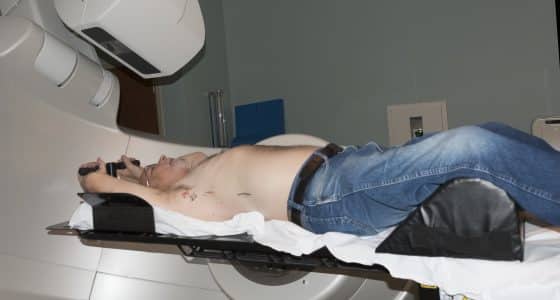Among the many challenges posed by malignant mesothelioma is the fact that the rare form of cancer’s tumors have an irregular shape that makes targeted radiation difficult and risks damage to nearby organs. The inability to fully use this treatment has long handicapped physicians, but now Japanese researchers have identified a way to boost the protocol’s effect.

Chemical Compound Improves Radiotherapy for Pleural Mesothelioma
Writing in the Journal of Radiation Research, scientists from Nagasaki University Graduate School of Biomedical Sciences revealed that they’d found that a compound called α-sulfoquinovosyl-acylpropanediol, or SQAP, made cancer cells open to radiation’s damage.
Though their research has been limited to SQAP’s impact on mesothelioma cells implanted in mice, the researchers are optimistic that further studies will replicate their findings in humans, allowing physicians to effectively use radiation to shrink patients’ aggressive tumors both before and after surgery.
Tests Show SQAP Makes Mesothelioma Tumors More Susceptible to Radiation
According to lear researcher Eiko Inamasu, human mesothelioma cells were injected into laboratory animals and then “Two mg/kg SQAP was intravenously administered with or without irradiation with a total body dose of 8 Gy.” The animals who were subsequently administered radiation showed improvement in their tumors.
“Immunostaining of the harvested tumors revealed decreased cell proliferation, increased apoptosis and normalization of tumor blood vessels in the SQAP- and irradiation-treated group.” This indicates that the tumors’ cells responded well to radiation therapy, suggesting that SQAP could prove extremely helpful for mesothelioma patients in the future.
If you or someone you love has been diagnosed with malignant mesothelioma, research like this offers significant hope. For additional information on meeting mesothelioma’s challenges, contact the Patient Advocates at Mesothelioma.net today at 1-800-692-8608.
